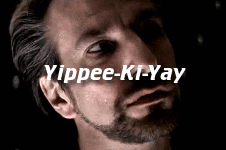Puns and plot spoilers: How English movie titles are translated into Italian

If you browse Italian cinema listings or Netflix, you'll notice that the titles of English-language films often have unexpected translations.
It's of course normal for the titles of books, films and other artworks to be translated in a non-literal way – usually the translator will try and convey the sense and message of the work, rather than go for a word-for-word translation.
But from concepts that get lost in translation to untranslatable puns, some English-to-Italian titles may surprise you. Here are a few of our favourites.
The very literal/spoilery ones
Hitch - Hitch - Lui sì che capisce le donne (Hitch - He really gets women). In the 2005 romcom Hitch, Will Smith plays a pickup artist coach who finds himself falling in love. The translator clearly thought the original left a little too much to the imagination, so decided to put the premise up top.
Eternal Sunshine of the Spotless Mind - Se mi lasci ti cancello (If you leave me I'll erase you). It seems Charlie Kaufman's title was too whimsical and open to interpretation for the translators of this twisty sci-fi love story, so they went for a plot summary, impressively managing to spoiler the entire film in the title.
Intolerable Cruelty - Prima ti sposo, poi ti rovino (First I'll marry you, then I'll ruin you). Catherine Zeta Jones is a serial marry-for-money divorcée who meets her match in shark-like divorce attorney George Clooney - or does she? That's right: first she'll marry you, then she'll ruin you.
READ ALSO: Ten of the best TV shows and films to help you learn Italian
Clueless - Ragazze a Beverly Hills (Girls in Beverly Hills). We're guessing the Italian distributors weren't sure what to do with this '90's adaptation of Jane Austen's Emma set in one of LA's wealthiest neighbourhoods, so went with a 'does what it says on the tin' strategy.
The inexplicable ones
How to Lose Friends and Alienate People - Star System - Se non ci sei non esisti (Star System - If you aren't there, you don't exist). This film based on a memoir by the right-wing British polemicist Toby Young received middling reviews, but does at least have Kirsten Dunst and Simon Pegg. What a Star System is and why not being there invalidates your existence is beyond our powers of deduction.
The Producers - Per favore, non toccate le vecchiette (Please, don't touch the old women). This classic about two hacks who cook up a scam to write the worst ever Broadway musical - naturally, about Hitler - that becomes an accidental hit features old women in the most marginal of roles (rich scam victims), so their prominence here is confusing. It does at least have the alternative title The Producers - Una gaia commedia neonazista (The Producers - A gay/gleeful neonazi comedy), which they should have gone with from the start.
READ ALSO: Six Italian series worth watching beyond My Brilliant Friend
The Place Beyond the Pines - Come un tuono (Like a thunderclap). The Place Beyond the Pines is apparently the Native American meaning of Schenectady, the city where this melancholy crime drama is set. It seems the Italian title comes from the film's line, 'If you ride like lightning, you're going to crash like thunder,' which makes more sense in context but sounds a little random outside of it.
The untranslatable/completely different ones
Die Hard - Trappola di cristallo (Crystal Trap). This is admittedly a tough one and they didn't do badly here, even if they didn't manage to find a replacement pun; 'Crystal Trap' is also the title used by the French translators. The action involves a hostage rescue in a glass skyscraper: it's a crystal trap. Simple.

Groundhog Day - Ricomincio da capo (I'm starting over). Like the words Hoover or Jacuzzi, Groundhog Day is a phrase that didn't have any particular meaning in English until this film became popular enough to give it one. The distributors didn't want to count on that becoming the case in Italy so opted for their go-to: a description of the plot.
Trading Places - Una poltrona per due (One armchair for two). This identity-swap film starring Eddie Murphy and Dan Aykroyd became an unexpected Christmas favourite in Italy, and is still regularly screened on primetime TV on Christmas Day or Christmas Eve.
As for the armchair, the word poltrone is also used in Italian to mean a job - as in having a 'seat' in parliament, or a 'seat at the table' in a company.
The (attempted) improvements
Home Alone - Mamma, ho perso l'aereo (Mummy, I missed the plane). We're guessing the translator of this film title saw the success of the 1989 film Honey, I Shrunk the Kids, which was translated directly into Italian, and saw no reason to mess with a winning format.
The Holiday - L'amore non va in vacanza (Love doesn't go on holiday). See what they did there?! Kate Winslet and Cameron Diaz might think they're just taking a little break from their lonely lives by swapping homes for Christmas, but Love isn't taking any time off!
READ ALSO: Seven classic films to watch for an Italian Christmas
Airplane! - L'aereo più pazzo del mondo (The craziest plane in the world). Foreign distributors are just trying to do their job by convincing as many people to see a film as possible so we can't really fault them for going with a little hyperbole here. In fairness, there are a lot of nutty characters on that plane.
The English to English ones
The Princess Diaries - Pretty Princess. The translators have taken an already bland title and given it a lobotomy. We can only assume that while the word 'diaries' might not be familiar to Italian audiences, they were counting on most people knowing 'pretty' and 'princess'. Maybe they also liked the alliteration?
Confessions of a shopaholic - I Love Shopping. 0/10, try again.
Do you have a favourite Italian movie title translation that isn't listed here? Please share it with us in the comments below.
Comments
See Also
It's of course normal for the titles of books, films and other artworks to be translated in a non-literal way – usually the translator will try and convey the sense and message of the work, rather than go for a word-for-word translation.
But from concepts that get lost in translation to untranslatable puns, some English-to-Italian titles may surprise you. Here are a few of our favourites.
The very literal/spoilery ones
Hitch - Hitch - Lui sì che capisce le donne (Hitch - He really gets women). In the 2005 romcom Hitch, Will Smith plays a pickup artist coach who finds himself falling in love. The translator clearly thought the original left a little too much to the imagination, so decided to put the premise up top.
Eternal Sunshine of the Spotless Mind - Se mi lasci ti cancello (If you leave me I'll erase you). It seems Charlie Kaufman's title was too whimsical and open to interpretation for the translators of this twisty sci-fi love story, so they went for a plot summary, impressively managing to spoiler the entire film in the title.
Intolerable Cruelty - Prima ti sposo, poi ti rovino (First I'll marry you, then I'll ruin you). Catherine Zeta Jones is a serial marry-for-money divorcée who meets her match in shark-like divorce attorney George Clooney - or does she? That's right: first she'll marry you, then she'll ruin you.
READ ALSO: Ten of the best TV shows and films to help you learn Italian
Clueless - Ragazze a Beverly Hills (Girls in Beverly Hills). We're guessing the Italian distributors weren't sure what to do with this '90's adaptation of Jane Austen's Emma set in one of LA's wealthiest neighbourhoods, so went with a 'does what it says on the tin' strategy.
The inexplicable ones
How to Lose Friends and Alienate People - Star System - Se non ci sei non esisti (Star System - If you aren't there, you don't exist). This film based on a memoir by the right-wing British polemicist Toby Young received middling reviews, but does at least have Kirsten Dunst and Simon Pegg. What a Star System is and why not being there invalidates your existence is beyond our powers of deduction.
The Producers - Per favore, non toccate le vecchiette (Please, don't touch the old women). This classic about two hacks who cook up a scam to write the worst ever Broadway musical - naturally, about Hitler - that becomes an accidental hit features old women in the most marginal of roles (rich scam victims), so their prominence here is confusing. It does at least have the alternative title The Producers - Una gaia commedia neonazista (The Producers - A gay/gleeful neonazi comedy), which they should have gone with from the start.
READ ALSO: Six Italian series worth watching beyond My Brilliant Friend
The Place Beyond the Pines - Come un tuono (Like a thunderclap). The Place Beyond the Pines is apparently the Native American meaning of Schenectady, the city where this melancholy crime drama is set. It seems the Italian title comes from the film's line, 'If you ride like lightning, you're going to crash like thunder,' which makes more sense in context but sounds a little random outside of it.
The untranslatable/completely different ones
Die Hard - Trappola di cristallo (Crystal Trap). This is admittedly a tough one and they didn't do badly here, even if they didn't manage to find a replacement pun; 'Crystal Trap' is also the title used by the French translators. The action involves a hostage rescue in a glass skyscraper: it's a crystal trap. Simple.

Groundhog Day - Ricomincio da capo (I'm starting over). Like the words Hoover or Jacuzzi, Groundhog Day is a phrase that didn't have any particular meaning in English until this film became popular enough to give it one. The distributors didn't want to count on that becoming the case in Italy so opted for their go-to: a description of the plot.
Trading Places - Una poltrona per due (One armchair for two). This identity-swap film starring Eddie Murphy and Dan Aykroyd became an unexpected Christmas favourite in Italy, and is still regularly screened on primetime TV on Christmas Day or Christmas Eve.
As for the armchair, the word poltrone is also used in Italian to mean a job - as in having a 'seat' in parliament, or a 'seat at the table' in a company.
The (attempted) improvements
Home Alone - Mamma, ho perso l'aereo (Mummy, I missed the plane). We're guessing the translator of this film title saw the success of the 1989 film Honey, I Shrunk the Kids, which was translated directly into Italian, and saw no reason to mess with a winning format.
The Holiday - L'amore non va in vacanza (Love doesn't go on holiday). See what they did there?! Kate Winslet and Cameron Diaz might think they're just taking a little break from their lonely lives by swapping homes for Christmas, but Love isn't taking any time off!
READ ALSO: Seven classic films to watch for an Italian Christmas
Airplane! - L'aereo più pazzo del mondo (The craziest plane in the world). Foreign distributors are just trying to do their job by convincing as many people to see a film as possible so we can't really fault them for going with a little hyperbole here. In fairness, there are a lot of nutty characters on that plane.
The English to English ones
The Princess Diaries - Pretty Princess. The translators have taken an already bland title and given it a lobotomy. We can only assume that while the word 'diaries' might not be familiar to Italian audiences, they were counting on most people knowing 'pretty' and 'princess'. Maybe they also liked the alliteration?
Confessions of a shopaholic - I Love Shopping. 0/10, try again.
Do you have a favourite Italian movie title translation that isn't listed here? Please share it with us in the comments below.

Join the conversation in our comments section below. Share your own views and experience and if you have a question or suggestion for our journalists then email us at [email protected].
Please keep comments civil, constructive and on topic – and make sure to read our terms of use before getting involved.
Please log in here to leave a comment.